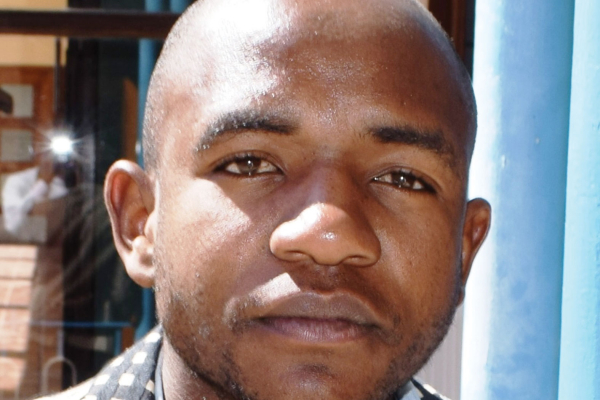
GIVE her a pen and she will vent out all her lived and imagined pains and sufferings, hopes and aspirations. Such is the case of the contemporary female writer. By Beniah Munengwa
Title: The Fifty Rand Note and Other Stories Author: Tsitsi Nomsa Ngwenya ISBN: 978-07941-7982-1 Publisher: Royal Publishing House (2017)
Tsitsi Nomsa Ngwenya, the multi-lingual writer from Matobo, fits perfectly into this tradition.
In this short story anthology, Ngwenya downloads the context of the present societal wretchedness and in its context. Whether you are in South Africa or in Zimbabwe, the going is the same. There is mayhem everywhere. Imagine being a person of high means and then losing all that, what would you do?
Think of growing up, with a well-cultured father that suits the description of morally prescribed social expectations then he changes all of a sudden and then he starts narrating his sexual exploits in front of your children, young or old alongside respectable visitors.
Then one who boards a bus and then tries paying an insufficient fare and then gets caught, but shows no remorse. Before that, you had seen, “a fat man behind the laundry shelf scratching off the security codes off an item,” intending to steal.
A robbery then follows and gunfire is exchanged, two are caught and four flee, but a stray bullet here had found its way into an infant’s head. Looting follows, a life is lost. And the mother of this baby is Zimbabwean, losing a dear child in a foreign land and still it’s a better place to live in than the homeland.
Here, another shot is fired, guns and knives roam anywhere, “that is the way it is,” Lucky Dube once sang though in a different sense, but he died of gun fire, may his soul rest in peace and the dear voice.
- Chamisa under fire over US$120K donation
- Mavhunga puts DeMbare into Chibuku quarterfinals
- Pension funds bet on Cabora Bassa oilfields
- Councils defy govt fire tender directive
Keep Reading
Business goes on as usual, all that is part of the new reality. That is the only way. Achebe in Anthills of the Savannah contemplates; writers should now migrate from merely identifying the problems of a society to identifying solutions for that society. But that is an argument for another day, but suffice to say, our dear Ngwenya falls short.
Also in exile are some homosexual Zimbabweans, who are in Egoli, a place where they can be who they are without risking persecution for their sexuality.
And back home, you recall the year you first came to town for your university education, joyously travelling by train and then entered a town that was filled with an aroma of fresh bread and potato chips. In town, you remember how you could try out new clothes without money to buy them, knowing, you’d wear them soon, getting to work after you’d graduated.
But you look now, and see where that town is now, where the enjoyable train rides are, and then you realise that you are now in a different nation, searching for something you know you will not find.
One day, you are going to town, in a kombi and it is in 2008, you pay and there is no change. You get paired, you disembark, you are bitter it is the wrong bus stop, all of you are mad at the driver.
He claims: “Since when have you ever questioned anything unfair done to you? Is it because I am not educated? You welcome harassment and intimidation from those who sit there burning your money and dignity to ashes.” And you realise, his streetwise verdict is true. You are ashamed.
And somewhere, one marries out of the love for money and all hell breaks loose, she regrets. Now all she has is money and no one to think of her as a woman. She cries, she whimpers. Jealous pervades here, a man is emotionally suffocated by an insecure woman, whom she married out of pity. All she contributes to the union is pressure and orders.
But elsewhere, love is burning hilltops, all is well and it does not look like the fire is going to die anytime soon. It is a welcome interlude, no what, no what, just bliss, that which is mostly found in books and films.
In some cases, a woman runs away from an oppressive custom. She cannot allow her father in-law to penetrate her womanhood. She feels glorious. And in another story, another setting, a mother is supreme. According to the viewpoint, she is all, forget the father.
That is how it goes in this anthology that some have ambitiously suggested it could be equated to the writings of Dambudzo Marechera and Yvonne Vera. Arguably, the stories of pain are well crafted, save for the merry ones, they could have been better if they were tighter and less linear.
I see, by my close reading through all the mixture of hell, pain and pleasure, of a documentation of a life short of functional structure, there are also some grammatical errors, words left out, letters misplaced and an Arrow of God written by Achebe.
Beniah Munengwa writes in his own capacity. He can be contacted through email on [email protected]











